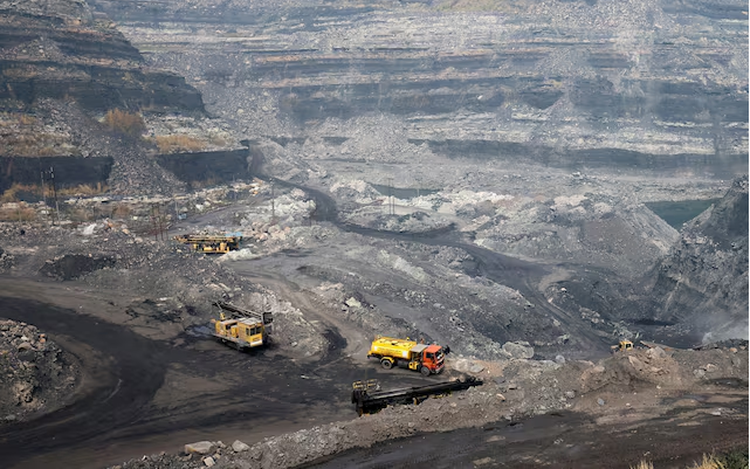
A general view of the open cast coal field at Topa coal mine in the Ramgarh district in the eastern Indian state of Jharkhand, India, February 27, 2024. Photo: Reuters
India has identified the 24 minerals as strategic and critical to its efforts to meet clean energy goals and move towards net zero greenhouse gas emissions by 2070.
It has already set aside 15 billion rupees for the recycling of these minerals, as part of an 163 billion rupee outlay to develop the critical minerals sector.
The incentives could take the form of subsidies on capital expenditure or incentives linked to production, the sources said, declining to be identified as the details are not public.
One source said the money would be spent over four to five years and should be sufficient to kickstart the industry.
Among other things, the scheme should help to expand India's capacity to recycle lithium-ion batteries from the current 75,000 metric tons a year, one of the sources said.
To boost availability, the government in February scrapped customs duty on the waste and scrap of a dozen critical substances including lead, zinc and cobalt powder as well as lithium-ion batteries.
Some of these are essential for electric vehicles, whose production India is trying to encourage to reduce its reliance on fossil fuels.
EV sales accounted for just 2.5% of the 4.3 million cars sold in India in 2024, but were up 20% against just 5% for the overall car market. Analysts expect sales to double to around 200,000 in 2025, mainly due to new launches.


Max: 1500 characters
There are no comments yet. Be the first to comment.